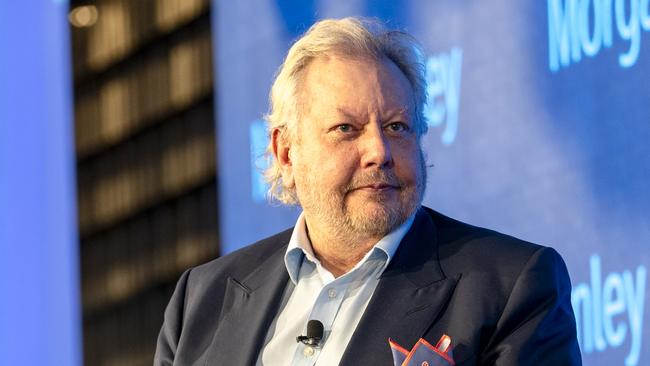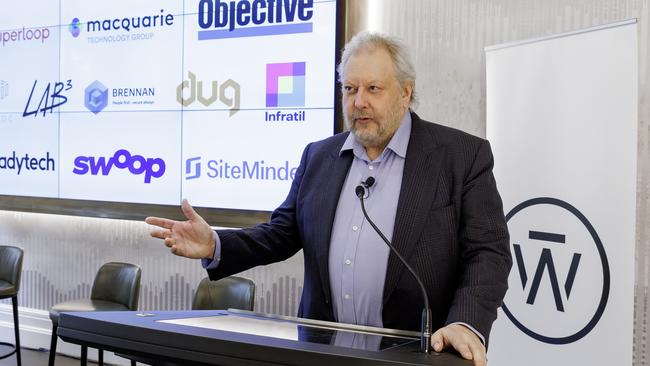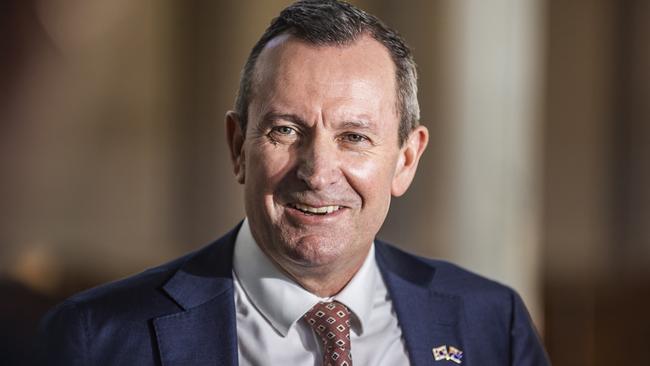
Marilyn Monroe once booked a plane ticket under the name of Zelda Zonk to escape the press at the height of her fame. In the 1970s, Paul McCartney used the pseudonym Apollo C. Vermouth when producing a single for The Bonzo Dog Band.
Marlon Brando checked into hotels as Lord Greystoke, Tom Cruise as Cage Hunt, and Kate Beckinsale, famously, as Sigourney Beaver.
But rather than follow in the grand traditions of the Hollywood stars, WiseTech billionaire Richard White settled for the far more prosaic “Rick Leblanc” when looking for a name to mask his purchase of a business and Sydney love nest with Linda Rogan, according to court documents.
That would be Rick the White, translating from the French. Which seems to lack a little imagination.
Contrast this to the way the businessman set out a structure for Rogan to buy out her business partners in Sydney health clinic Bionik Wellness, according to a document dubbed “LR aesthetics strategy”.
White was keen to hide his involvement in the buyout, according to Rogan, because the price would go up if partner Sam Lehain and husband Gil Sartena learned a billionaire’s money was involved.
White proposed setting a bare trust for property transactions, a discretionary trust, and three new companies into which the Bionik Wellness business and its intellectual property would be transferred.
Rogan was to be a director of only one of the companies, with the others to have directors “not connectable” to Rogan or White.
To go to all that trouble, and then settle for a nom de guerre straight from Google translate seems such a wasted opportunity.

Qantas pulls the pollie punters
Exactly how much does Qantas benefit from its cosy relations with our cadre of federal politicians?
Hard figures show the Chairman’s Lounge is a handy winner for the Qantas camp.
And forget suggestions of regulatory capture, or dark hints about cosy protection deals for the national carrier. Just the business of politicians alone – across all of the independents and political parties – is a nice little earner for Qantas.
And it’s not even close, according to figures unearthed by maverick Tasmanian Senator Jacqui Lambie. Our federal pollies overwhelmingly prefer the comforts of the Chairman’s Lounge to the dubious offers from the competitors.
Last financial year federal pollies and their staff spent $32.7m flying around the country on commercial carriers.
Of that, Qantas billed $25.6m – a whopping 78 per cent. Virgin Australia got $2.7m, with daylight third and Rex fourth, with $151,276 in bookings.
Budget carrier Jetstar? It won $130,794 worth of politicians’ business, no surprises there. And one idiot booked a $103 ticket on Bonza. We hope they got home OK.
In fact, since 2020 – when Virgin went bust – Qantas has captured an average of more than 80 per cent of flights booked by politicians and their staff. Contrast that to before the pandemic, when it was closer to 67 per cent each year.
And this isn’t some buying preference forced by a broader government contract – MPs and Senators get to pick their own flights and carriers.
Lambie, currently fired up by Qantas’s decision to cut flights out of Devonport in Tasmania’s north, called down a fresh pox on the houses of both major parties.
“Anyone would think that the members of the major parties have shares in Qantas because both of them are as bad as each other, propping up Qantas. This has been going on for years, and both have been a part of the problem in prices going up.”
“The question is: why aren’t parliamentarians and their staff taking the cheaper flights?”
Fair question.
Wild Frontier
It was only seven weeks ago that renewable energy tiddler Frontier Energy scored a recruiting coup, announcing that former WA premier Mark McGowan would join as the Frontier chairman, starting September 2.
The announcement gave the company’s shares a bit of a kick as it negotiated a place for its $300m Waroona solar and battery project within the state’s grid, and was followed a week later by a $40m capital raising.
McGowan’s chairmanship was featured in market releases in September, on the company’s website and in company presentations. But the story changed in late September, after Margin Call gently inquired about the lack of an initial director’s interest notice from McGowan. Instead, McGowan would start on October 8, after the shareholder meeting to approve the capital raising.

But Tuesday brought another delay, apparently, with a “start date still to be confirmed”.
What can possibly have changed?
Frontier isn’t saying, but its fortunes have taken a significant dive since McGowan’s putative appointment. Frontier won’t be getting capacity credits from the WA market operator – payments to ensure there’s enough power generation in the grid that would have been a crucial revenue stream for the company’s project.
That decision knocked out Frontier’s major debt financing facility, and forced the withdrawal of the second half of its capital raising after Frontier’s shares dived – so much so that executive chairman Grant Davey has splashed more than $500,000 on Frontier shares this week in an effort to prop up confidence in its future.
Oh, and with Frontier closing at only 14c on Tuesday, McGowan’s generous sign-on package – starting with a million Frontier 20c options if he sticks around for a year – is now well out of the money. But it couldn’t possibly be that, surely?






To join the conversation, please log in. Don't have an account? Register
Join the conversation, you are commenting as Logout